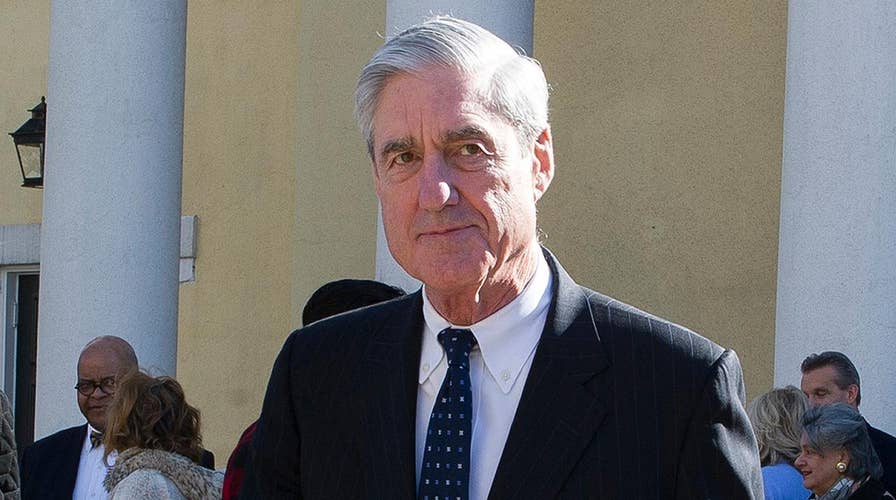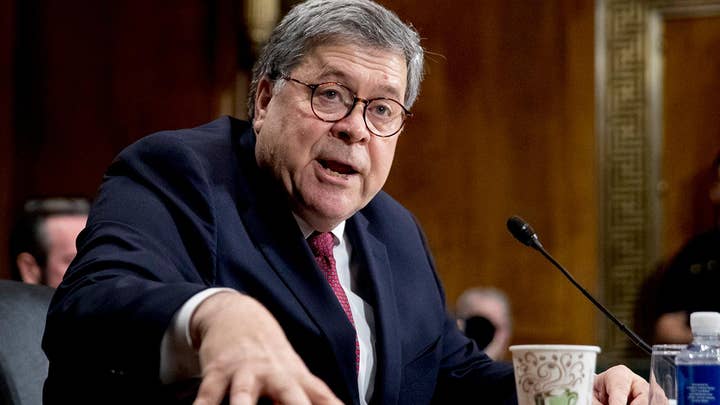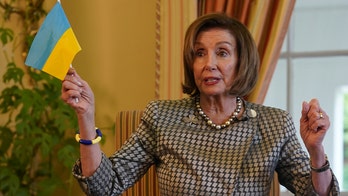Media in a frenzy over Mueller's letter to Attorney General Barr
Reaction and analysis from The Hill media reporter Joe Concha on 'Tucker Carlson Tonight.'
The White House tore into Robert Mueller and his investigators in a recent letter to Attorney General Bill Barr that argued the special counsel's team included "political statements" in their Russia report and "failed" to act as traditional prosecutors -- while stating President Trump reserves his right to invoke executive privilege on matters related to the report.
In the April 19 letter to the Justice Department obtained Thursday by Fox News, White House Counsel Emmet Flood laid out a series of concerns with the Mueller report, specifically on the team's handling of the investigation into whether Trump obstructed justice.
TRUMP: 'NO REASON' TO HONOR DEMS' 'VERY PARTISAN' SUBPOENAS
“The Special Counsel and his staff failed in their duty to act as prosecutors and only as prosecutors,” Flood wrote, complaining that the report "suffers from an extraordinary legal defect" by failing to comply with the "requirements of governing law."
Flood raised concerns that the team did not reach a determination on the obstruction question while still going into great detail about the probe's findings and including a pointed passage that stated the probe did not exonerate the president. That passage read: “The evidence we obtained about the President’s actions and intent presents difficult issues that prevent us from conclusively determining that no criminal conduct occurred. Accordingly, while this report does not conclude that the President committed a crime, it also does not exonerate him.”
Flood noted prosecutors “simply are not in the business of establishing innocence” and described these as "political statements."
The letter was sent a day after the redacted version of the Mueller report was made public. But the points in the letter aligned with testimony from Barr himself this week before the Senate Judiciary Committee, where he said he did not understand why Mueller did not reach a conclusion on the obstruction question.
Flood, in his letter, said "the one thing the SCO (Special Counsel's Office} was obligated to do is the very thing the SCO -- intentionally and unapologetically -- refused to do. The SCO made neither a prosecution decision nor a declination decision on the obstruction question." Flood complained that the report was instead “laden with factual information that has never been subjected to adversarial testing or independent analysis.”
He also said Mueller "produced a prosecutorial curiosity," describing the report as "part 'truth commission' report and part law school exam paper."
Despite Trump himself claiming the report exonerated him, the document only said Mueller did not find evidence of collusion with Russia while leaving the obstruction question open. Barr determined the obstruction evidence did not constitute a crime, but the report's section on that issue included extensive and damaging details about the president's actions, including the allegation that he told his former White House counsel to have Mueller removed.
Flood took issue with the analysis that Mueller intentionally didn’t issue a conclusion on obstruction, but rather decided to provide information about his investigation so Congress could decide whether to take action, like impeachment.
WHITE HOUSE DENIES DEMS INFO ON SECURITY CLEARANCE PROCESS
“By way of justifying this departure, it has been suggested that the report was written with the intent of providing Congress some kind of ‘road map’ for congressional action,” Flood wrote, adding if that’s the case, “it too serves as additional evidence of the [Special Counsel Office’s] refusal to follow applicable law.”
Flood, meanwhile, asserted that Trump waiving executive privilege on the report does not constitute a blanket waiver, as senior aides face subpoenas on Capitol Hill related to the Russia investigation.
The letter comes as the White House has signaled it intends to vigorously oppose subpoenas that might run up against executive privilege, a power sanctioned by the Supreme Court that allows the president and members of the executive branch to shield certain internal communications from disclosure, absent a compelling overriding justification.
“We're fighting all the subpoenas," Trump told reporters at the White House last week.
Trump has argued that he has been “transparent” as president and had already turned over documents to Mueller’s team – suggesting it’s not necessary to cooperate with the Democratic probes.
The White House has signaled plans to fight House Democrats' subpoena of testimony and documents from ex-White House counsel Don McGahn. The brewing fight over the McGahn subpoena was poised to set up a series of other contentious legal showdowns as Democrats seek to publicly question more current and former Trump aides who featured prominently Mueller's report on the Russia investigation.
Fox News' Judson Berger and Gregg Re contributed to this report.






